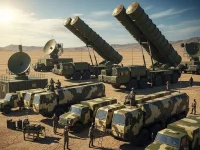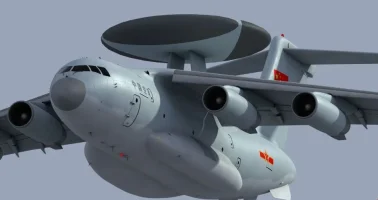- Views: 2K
- Replies: 14
In a significant update on India's defence preparedness and self-reliance goals, Defence Minister Rajnath Singh confirmed two major strategic developments on Friday.
Speaking at the Defence Investors Summit in Lucknow, the minister announced that India is prepared to procure additional S-400 'Triumf' air defence systems from Russia.
In a parallel announcement boosting the 'Aatmanirbhar Bharat' (self-reliant India) initiative, Mr. Singh revealed that the nation is "on the cusp" of a breakthrough in aviation, suggesting domestic production of advanced fighter jet engines could begin "within a year."
Both high-priority programmes are reportedly awaiting final approval from the Cabinet Committee on Security (CCS), the government's highest decision-making body on national security matters.
Bolstering Air Defence with S-400
The Defence Minister's statements reaffirmed India's commitment to the S-400, widely regarded as one of the world's most advanced long-range surface-to-air missile (SAM) systems."If available, we will certainly pursue additional S-400 units to enhance our layered defences," Mr. Singh stated, signalling India's interest in expanding its arsenal beyond the initial 2018 contract.
That original deal, valued at $5.43 billion (approximately ₹40,000 crore at the time), was for five squadrons. Three of these systems have already been delivered and are operational along India's northern and western borders. The delivery of the remaining two squadrons was delayed due to the Russia-Ukraine conflict but is expected to be completed by 2026.
India proceeded with the acquisition despite the threat of sanctions from the United States under its Countering America's Adversaries Through Sanctions Act (CAATSA), which targets nations making significant defence deals with Russia. The minister's new comments indicate that this external pressure will not deter future purchases deemed critical for national security.
While the minister did not specify the number of additional units, reports suggest discussions for up to five more squadrons. This move is seen as a direct response to the evolving security landscape, including new aircraft and missile procurements by neighbouring countries.
The Propulsion Leap: A 'Made in India' Jet Engine
The second major announcement focused on a long-standing gap in India's defence manufacturing: fighter jet engines.Mr. Singh's optimistic one-year timeline for indigenous production highlights the progress made in a crucial collaboration between India's DRDO and France's leading engine manufacturer, Safran.
This joint venture aims to co-develop a new 110+ kilonewton (kN) thrust engine. This powerful engine is critical for India's next-generation fighter programs, most notably the Advanced Medium Combat Aircraft (AMCA), a fifth-generation stealth fighter currently under development.
Key aspects of the Indo-French engine deal include:
- 100% Transfer of Technology (ToT): Unlike past agreements, this partnership includes complete access to "crystal blade" technology and other core components, allowing India to fully absorb and master the complex manufacturing process.
- Full Intellectual Property Rights (IPR): India will hold the IPR for the new engine, enabling it to modify, upgrade, and export the technology independently.
- Ending Decades of Struggle: This project is set to succeed where the indigenous Kaveri engine, developed by the DRDO's Gas Turbine Research Establishment (GTRE), fell short of meeting the required thrust for modern combat aircraft.



